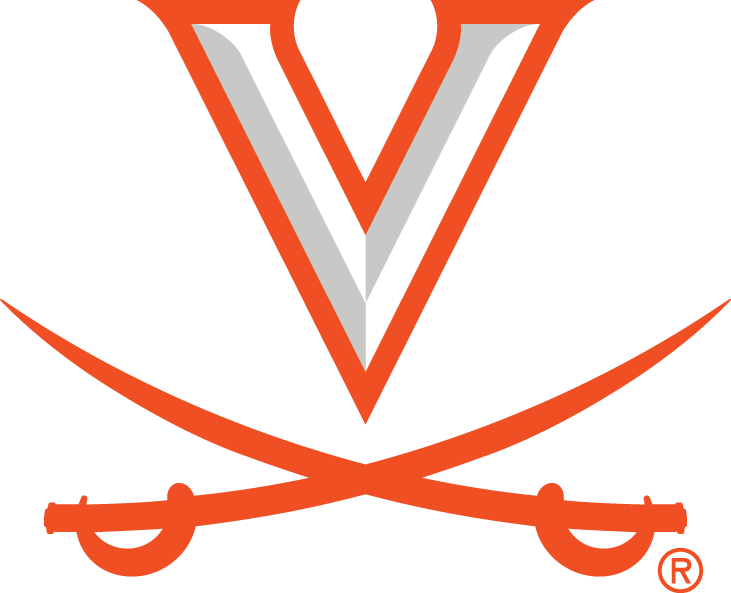By Jeff White (jwhite@virginia.edu)
VirginiaSports.com
CHARLOTTESVILLE, Va. — When the transfer portal opened for football in December, the University of Virginia athletics department was ready. UVA officials had spent last summer and fall building a front office model to help the football program navigate the portal and the ever-changing world of Name Image and Likeness (NIL) compensation.
The build-out included multiple meetings with former NFL executive Scott Pioli. In one of his fall visits to UVA, Pioli met with athletics director Carla Williams, deputy AD Tyler Jones and head football coach Tony Elliott, among others. During a career in which he worked for such teams as New England, Kansas City and Atlanta, Pioli was a five-time NFL Executive of the Year, and he was named NFL Executive of the Decade for 2000 to 2010.
“His insights were incredible,” Jones said.
Pioli began working with UVA last spring, Williams said. He participated in a GM summit held by UVA Athletics last summer, along with current general managers from the NBA and WNBA. Representatives of football, men’s basketball, women’s basketball, baseball and other UVA sports programs attended the event.
Jones said he also spoke in the fall with “several other assistant general managers and former general managers on the NFL side. It was great for me to do that individually to learn. So we were having those conversations in October and in November in preparation for [the opening of] the portal in December, but also building the infrastructure that’s more sustainable across several sports.”
His colleagues at the McCue Center include deputy athletic director Wally Walker, a former NBA general manager, and “tapping into his expertise and experience was helpful as well,” Jones said.
More than ever, there are parallels between college and professional sports, and for football the Cavaliers implemented a new collegiate structure similar to what’s common in professional sports.
Jones played both football and basketball at Eastern Michigan University, where he set two NCAA records as a wide receiver. Jones serves in a general manager capacity at UVA, with Justin Speros, the program’s director of recruiting, functioning as assistant GM.
Elliott’s endorsement of this structure allows him to focus primarily on coaching his team and recruiting. Still, he’s in constant communication with Jones, who came to UVA from Northwestern University in July 2023.
“We’re aligned,” Jones said. “He and I speak at least three to four times a day, about all aspects of the program. Budgeting, advanced non-conference scheduling, personnel, recruiting, talent evaluation, we’re talking through those day to day.”
Elliott noted that Jones “brings a wealth of experience from all different levels of football. He’s got a great personality, a ton of credibility, and he’s a servant leader. There’s no ego there. We clicked well before we ever got to this point where we were navigating these uncharted waters together.”
In December, the football program received two multi-million dollar gifts from anonymous donors, which provided UVA with significantly more financial resources to access a higher caliber of talent.
The program also leaned heavily on analytics, with some data compiled externally and some internally, to help the staff determine which players to pursue and their valuation. The goal was to make data-driven decisions, Jones said.
The Wahoos’ 2024 season ended in late November. The portal window that opened the next month “was our first opportunity to really layer vision, analytics, scheme and financial resources with recruiting,” Jones said.
The result was a highly regarded transfer class made up of 19 players. The top priority was to add two quarterbacks, and the Hoos did so, signing Chandler Morris (North Texas) and Danny Kaelin (Nebraska). They also wanted to shore up both lines, and they succeeded on that front, too.
“So I think it was a positive portal phase,” Jones said. “We finished top 25 in several different publications. That’s encouraging. We feel really, really good about how we’ve been able to replenish the roster. So our talent composition, we believe, has improved, but we’re not done yet. And there’s definitely some positional groups that we need to address in the spring portal. Defensive back will be a priority for us.”
The system worked well, said Elliott, who’s in his fourth year at Virginia, “because there was a ton of trust amongst everybody, from Carla to myself to Tyler to Speros. It required a lot of trust in everybody’s ability to evaluate, trust in the different pieces of information that people were able to gather to bring in, and collaborate to make sure that everybody was on the same page, and then also the trust to say, ‘I’ve got to take my emotions out of this situation and do what’s best for the program.’
“So I think it really just hinges on the great working relationship that everybody has and the trust that we have. And that alignment was centered around doing what’s best for the University of Virginia and putting together the best roster that fits the culture, that fits the University and then gives us the best opportunity [for success].”
